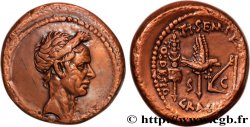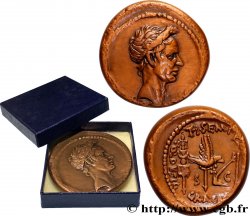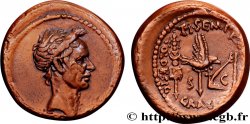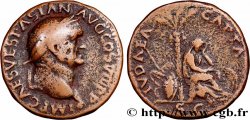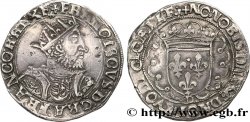Live auction - brm_529447 - JULIUS CAESAR Denier
You must signin and be an approved bidder to bid, LOGIN TO BID. Accounts are subject to approval and the approval process takes place within 48 hours. Do not wait until the day a sale closes to register. Clicking on "BID" constitutes acceptance of the terms of use of cgb.fr private live auctions.
Bids must be placed in whole Euro amounts only. The sale will start closing at the time stated on the item description; any bids received at the site after the closing time will not be executed. Transmission times may vary and bids could be rejected if you wait until the last second. For further information check the Live auction FAQ
All winning bids are subject to a 18% buyer’s fee.
All winning bids are subject to a 18% buyer’s fee.
| Estimate : | 800 € |
| Price : | 570 € |
| Maximum bid : | 588 € |
| End of the sale : | 04 June 2019 14:48:08 |
| bidders : | 3 bidders |
Type : Denier
Date: 49 AC.
Mint name / Town : Gaule ou Italie
Metal : silver
Millesimal fineness : 950 ‰
Diameter : 18,5 mm
Orientation dies : 12 h.
Weight : 3,96 g.
Rarity : R1
Coments on the condition:
Très bel exemplaire avec un éléphant bien venu à la frappe. Patine grise
Catalogue references :
Predigree :
Exemplaire provenant de la collection Robert Couet
Obverse
Obverse legend : CAESAR À L'EXERGUE.
Obverse description : Éléphant passant à droite ; à ses pieds, un serpent (ou carnyx, trompette gauloise).
Obverse translation : “Cæsar”, (César).
Reverse
Reverse legend : ANÉPIGRAPHE.
Reverse description : Instruments pontificaux : simpulum, aspersoir, hache à sacrifice, chapeau à sacrifice.
Commentary
Pour ce type, M. Crawford a relevé une estimation de 750 coins de droit et de 833 coins de revers, représentant une production qui pourrait avoisiner les deux à quatre millions de deniers. Pendant très longtemps, on pensa que ce denier avait été frappé par César pendant la Guerre des Gaules entre 58 et 52 avant J.-C., en Gaule même. En fait, il fut fabriqué au début des Guerres Civiles. Il a été imité servilement par les Trévires avec le bronze HIRTIVS (LT. 9235), fortement romanisé.







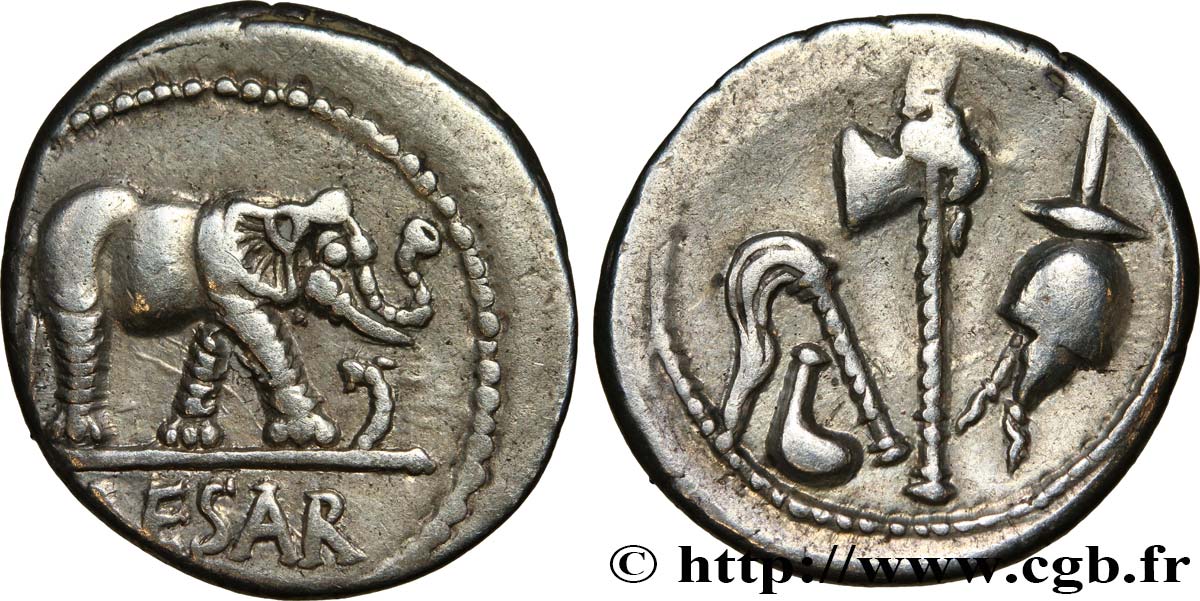
 Report a mistake
Report a mistake Print the page
Print the page Share my selection
Share my selection Ask a question
Ask a question Consign / sell
Consign / sell
 Full data
Full data